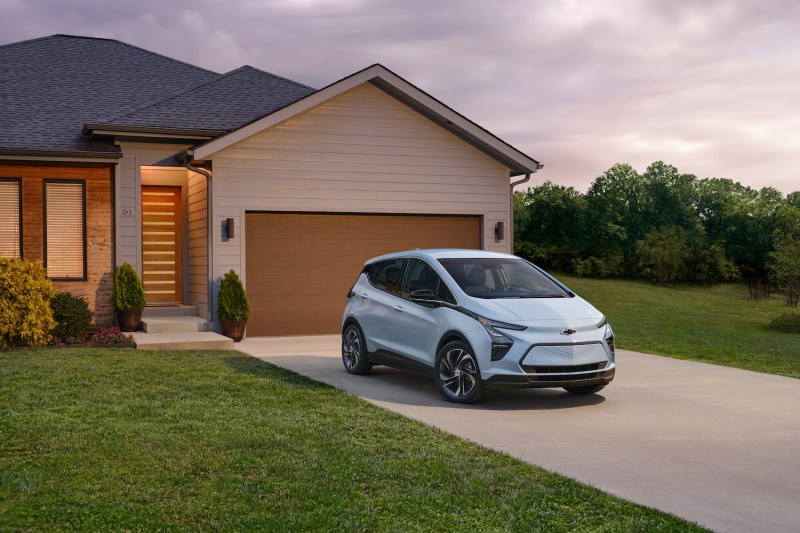
According to statistics, car sales grew by about 75.3 million globally in 2023, up from the estimated 67.3 million units sold in 2022. Evidently, buying a car is a big purchase, like buying a home, that many people want to achieve during their lifetime.
Unfortunately, much like houses, cars have become increasingly more expensive in recent years. This is why people want to ensure they are buying a reliable car that isn’t going to break down on them a few months to years down the line. The bottom line is drivers want reliability now more than ever.
Yes, innovative tech features, appealing designs, and incredible engine performance play a part in the selection process. Still, more people are looking for reliable designs that will take them the extra mile. Fortunately, each year, Consumer Reports publishes an extensive list of the least reliable vehicles drivers can purchase, and this year’s list has a few brands you might not expect. The information provided on this list helps drivers learn about car reliability ratings and what to avoid.

How Consumer Reports determines reliability
However, before we get into the rankings, it’s an excellent idea to learn how Consumer Reports determines a car’s reliability. Ultimately, Consumer Reports uses detailed survey data collected from members on over 300,000 vehicles, showcasing the many problems a car can have.
Specifically, Consumer Reports examines 20 issues cars can have, like broken interior trims, squeaky brakes, out-of-warranty engine issues, EV battery concerns, and transmission issues. Once the surveys are in, Consumer Reports weighs the severity of each vehicular issue to give every car a predicted reliability score from 1 to 100, with a lower score denoting more problems.

What are the least reliable cars and brands, according to Consumer Reports?
Have a look below to learn about the least reliable vehicles based on lower score ratings:
- Chrysler Pacifica Hybrid: 14
- Volkswagen Taos: 18
- Ford F-150 Hybrid: 19
- Volvo XC60 PHEV: 21
- Rivian R1T: 22
- Jeep Grand Cherokee L: 23
- Nissan Frontier: 23
- Volkswagen Jetta: 25
- Jeep Grand Cherokee: 26
- Jeep Wrangler: 27
There are a few surprising additions to the 2024 least reliable list for auto manufacturers. Have a look below at the least reliable car brands:
- Chrysler: 18
- Mercedes-Benz: 23
- Rivian: 24
- Volkswagen: 26
- Jeep: 26
- Volvo: 28
- GMC: 36
- Lincoln: 38
- Ford: 40
- Dodge: 42
Unfortunately, this list had some surprising findings, with the Ford F-150 taking third place in terms of being the least reliable. This is surprising, considering it has been one of the best-selling vehicles for decades. One of the reasons it could have cinched that spot is its deviation from its usual powertrain. In 2024, the Ford F-150 models possess hybrid powertrains.
Then there’s the Chrysler Pacifica Hybrid topping the list and the Rivian R1T securing fifth place. Both of these vehicles are EVs and are touted as significantly more reliable and affordable than gas-powered cars, but this is not turning out to be true, considering both models have many issues.

Consumer Report 2024 vehicle findings discussion
Many of the vehicles listed on the Consumer Reports reliability list were not expected, and it’s true that many could be present because of how consumers drive them. After all, vehicles like the Ford F-150 and the Jeep Grand Cherokee L are made for towing, hauling, and off-road adventures, and even the most well-built cars cannot take years of abuse without displaying their fair share of auto issues.
However, overall, Ford wasn’t a brand that did too poorly in the Consumer Reports reliability ratings for 2024, but it’s clear to see that you might want to reconsider your choice of a new car and do more research before making a sale. This is especially true if you’ve been interested in Chryslers or Mercedes models (the horror).
It might be in your best interests to avoid the brands on the list mentioned and go with a model found to be reliable, as per Consumer Reports’ findings. Some of the most reliable cars with higher scores included the Toyota 4Runner, which scored 87, the Toyota Camry, which scored 86, the BMW X5, which scored 82, and the Acura RDX, which scored 80.
Many other Toyotas were ranked as the most reliable, so it might be a safe bet to add a new Toyota to the top of your list of vehicle considerations.
Editors' Recommendations
- How you can get a Porsche 911 modified to feel like a retro Porsche 935
- 2024 Mercedes-Benz CLE Cabriolet: Drop-top dream car reaches U.S. shores
- How much does a Formula 1 car cost? You might be surprised
- IIHS has raised its standards for crash test safety — these are the safest cars for 2024
- Enjoy the classics: The best collector cars you can get in 2024




